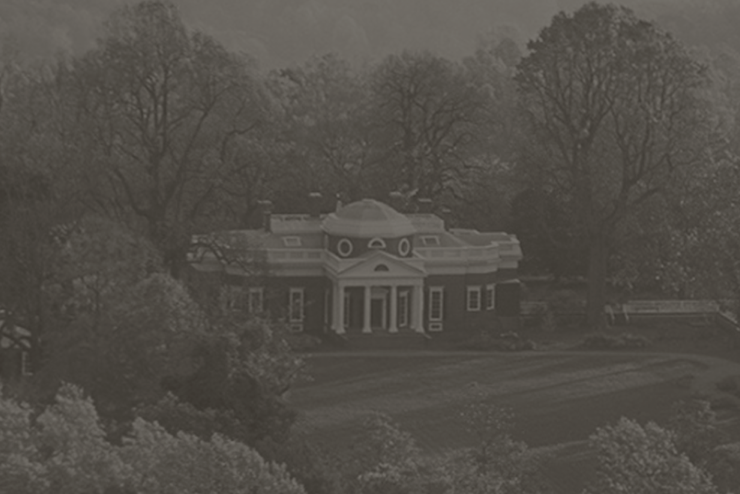How to Spot a Fake
It seems that the glory days of spurious Jefferson quotations have gone. Rarely do we get these types of questions any more. Now that we are experiencing a breather on that front, I've had the chance to ponder the phenomenon a bit. One thing I've been thinking about is what gives spurious quotes away as "fakes." When we used to receive questions about these, we would often know right away that it wasn't a genuine excerpt from Jefferson's writings. How did we know? You do develop a sense of Jefferson's style if you are reading his (genuine) writings all the time, so when we're presented with an imposter quotation, I suppose we are subconsciously picking up all sorts of linguistic elements and habits of usage that distinguish Jefferson's writing style from the (mostly 20th-century) fakes. For those readers out there who'd like to be better equipped to spot a fake Jefferson quote, though, "go read Jefferson's writings all day for several years" is probably not a practical solution. So I thought I would set out to try to pin down the specific elements in spurious quotations that make our ears perk up. Here's the list of Signs of Fakery that I've come up with so far:
- Contractions. Jefferson almost never used contractions in his formal writings (by which I mean his letters to others, as opposed to brief notes or other writings for his own use). "I've," "you'd" "don't," etc. etc. etc. are very rare indeed in Jefferson's papers.
- Use of "You" as an indefinite pronoun. Jefferson was not in the habit of using the 2nd person singular unless he was actually addressing someone. A good example of totally uncharacteristic use of "you" is this spurious quotation: "Do you want to know who you are? Don't ask. Act!..."
- Anachronistic language. One infamous example of this is the "private banks" quotation, which mentions inflation and deflation - terms not yet in use during Jefferson's lifetime to describe currency.
- Anachronistic sentiment. Consider this quotation: "The harder I work, the more luck I have." It sounds okay until you realize that Thomas Jefferson was a Virginia planter, not a Victorian orphan who became an industrial tycoon. This and some other spurious quotations express a kind of plucky Horatio Alger-esque, pull-yourself-up-by-your-bootstraps sentiment that makes no sense in Jefferson's world.
- Contradictory sentiment. "Democracy is nothing more than mob rule..." Jefferson may have changed his opinions about some things over the course of his long life, but I'm pretty sure that he was a diehard believer in the rightness of democracy as a political system, and in the ability of the people to govern themselves, until the very end. Watch out for quotations that don't jive with Jefferson's real opinions.
- Pithy aphorisms. The ability to encapsulate his entire philosophy on a topic in one sentence was not among Jefferson's many talents. As it happens, this is how many spurious quotations represent themselves, so when you see a catchy one-sentence statement of policy, be suspicious. The only places that one finds things like this in his writings, generally, are in his Canons of Conduct, and a few of his "advice letters" to young proteges like Peter Carr. There are also a number of paraphrases out there that are based on real quotations, but are much snappier than the original. "Wine is a necessity of life" is a good example. Actually, Jefferson really said, "...[Montepulciano] being a very favorite wine, and habit having rendered the light and high flavored wines a necessary of life with me." Sometimes Jefferson just needed a good copyeditor, and by golly some people have risen to the occasion, bless their hearts (starting with Messrs. Lipscomb and Bergh, editors of the 1903-07 edition of Jefferson's writings).
Contextual Red Flags
Sometimes it's not necessarily the quotation itself that's suspicious (or not only the quotation), but the context in which it appears.
- No citation. This is a suspicious sign, although not an absolute sure indication of a fake. If you see a stray reference to a quotation with no citation, that doesn't necessarily mean anything; people do that all the time, sometimes for aesthetic reasons. If you see nothing but references to a quotation without a citation, that's very bad And no, "Thomas Jefferson, 1743-1826" is not a proper citation.
- Quotation only in non-historical literature. If you search for a quotation and you see it quoted on a lot of electronic bulletin boards and websites unrelated to historical study, that's a little fishy, but not in itself a sign of a spurious quotation - people quote Jefferson correctly all the time in informal media. If you search further for the quotation on Google Books or Internet Archive, and the only place you find it is in business and self-help books, it's almost certain doom. A good example of this is "That which we elect to surround ourselves with becomes the museum of our soul and the archive of our experiences," which is found almost exclusively on interior design websites and in books by interior designers.
So, there you go. Go forth and debunk with confidence; be sure not to mortally offend any lifelong friends or close relatives in the process; and please tell us about any brand-new spurious quotations you find!


